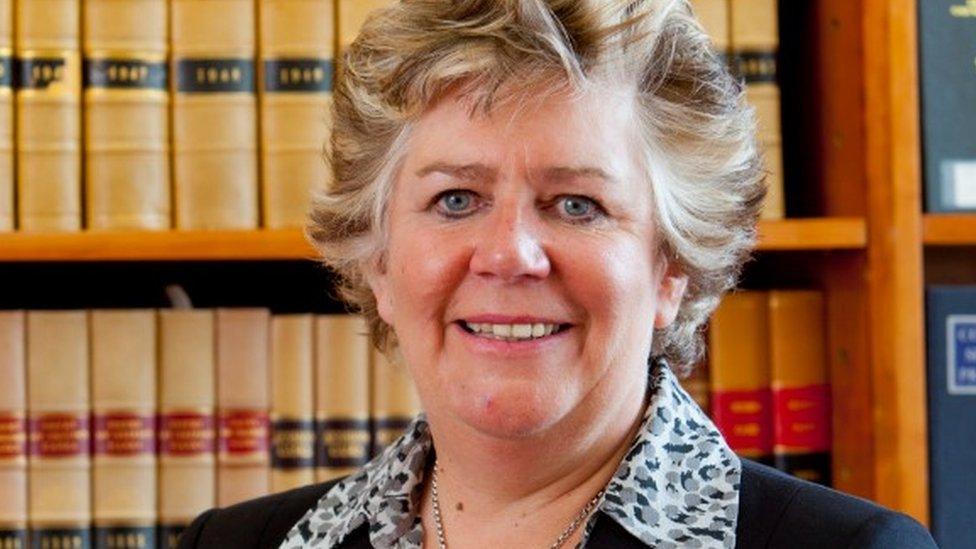Smaller juries considered to restart criminal trials
- Published

Lord Justice Clerk Lady Dorrian is heading the short-term working party
Senior lawyers are considering how jury trials can be resumed in the most serious criminal cases when public health guidelines allow.
Jury trials were suspended at the end of March as part of the Covid-19 lockdown.
A group, headed by Lady Dorrian, will look at possible changes to court layouts and the use of new technology.
They will also consider whether jury sizes could be reduced to meet social distancing requirements.
When the lockdown was imposed on 23 March, all trials which were already under way were allowed to continue - including the case against former First Minister Alex Salmond - but all others were postponed until it is safe for them to go ahead.
Some court cases not requiring juries are continuing, using video technology, but a huge and growing backlog of trials has led to a short-term working group being established to come up with solutions.
In a letter to the Holyrood justice committee on 20 April, the Scottish Courts Service estimated that by August there could be a queue of 1,600 trials at the High Court and Sheriff Courts, which would require a jury.
Lord Justice Clerk Lady Dorrian, Scotland's second most senior judge, said many types of civil and criminal cases were progressing in challenging circumstances, using remote technology.
But she said it was clear that, if social distancing requirements persist once lockdown restrictions are eased, it will not be possible to reinstate 15-member jury trials as they were before the emergency regulations were introduced.

What changes could be made to jury trials?

Lord Bonomy presides over mock jury in court research
The working group will look at how physical and other practical constraints on jury trials might be overcome while still meeting social distancing requirements. It is examining:
Alternative uses of space in courts,
Innovative use of technology to allow some participants to take part virtually,
Juries smaller than the current 15 members to meet social distancing requirements.
Legislative changes to allow changes to trial practice and procedure

Serious criminal cases

Lady Dorrian said: "This working group recognises the importance to the accused, to witnesses, and to their families, of continuing that progress to consider serious criminal cases.
"The particular challenges of conducting a jury trial, while also following public health guidelines to protect those engaged in the hearing, is a difficult balance to meet.
"This group is working as quickly as is possible to ensure that all the impacts and practicalities are fully considered in order to provide the best outcome for Scotland, both in terms of justice for all concerned, but also in terms of public safety."
The group's initial focus will be on trials in the High Court, but lessons may also be applied to jury trials in the Sheriff Court.
When the lockdown commenced, Scotland's senior judge, the Lord Justice General Lord Carloway, said social distancing requirements meant jury trials could not take place in a suitably safe and secure manner.
Justice Secretary Humza Yousaf held a series of roundtable discussions on the options available to facilitate a restart.
But one proposal - to hold trials without juries - was abandoned after opposition within Holyrood and from the legal profession.
Apart from judges, the working group includes representatives of the Crown Office, Faculty of Advocates, Law Society of Scotland, Scottish Courts and Tribunals Service, Rape Crisis Scotland and the Scottish government.
It will also liaise closely with others with relevant expertise, such as Police Scotland, the Scottish Prison Service, Victim Support Scotland, and Scottish Women's Aid.